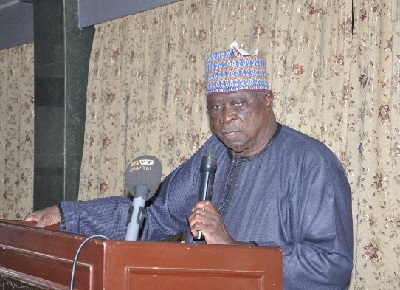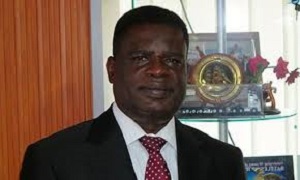Keyamo: A Daniel Comes To Judgement In Aviation Industry
By Nduka Uzuakpundu

There is an ongoing fierce lobbying at the National Assembly in Abuja, about what should be the content and scope of a planned legislation that would be protective of consumer rights in the aviation industry. It was triggered, some weeks ago, when Mr. Festus Keyamo (SAN), Minister of Aviation said that, when the legislation was ready, airlines would be duty bound to compensate passengers affected by a cancelled flight.
Just how crucial and far-reaching would be the legislation explains how jittery are most of the airline operators – even when the National Assembly was on recess.
What’s about to happen is what they not used to. Beyond the refund of passengers’ airfare for the flight cancelled – whatever the reason – the airlines are already on public relations, information management and damage control courses, in readiness for the passenger compensation legislation.
They may have all the money, just in case a suit is filed against them, within the limits of the expected legislation, what they are not sure they can control is the damage, in the press, to their image in the eyes of consumers in that sector of the Nigerian economy. It would be interesting to see the first of the airlines to pay compensation promptly to passengers for cancelled flight or the first to be dragged to court, for the same reason, in Lagos. On account of the many dynamics of the airline industry, some of which the airlines may not be able control or predict – bad weather or stormy atmospheric conditions – the airlines may have a very strong excuse for cancelled flights.
But consumers, in pressing their rights to a satisfactory service, may need, in that event to find out from the meteorological service the truth. A titanic battle seems to be in the offing in aviation sector. Keyamo’s learned friends are looking forward to what role they would play therein! The first airlines, in either case, some consumers have offered, somewhat facetiously, to fall a victim of the expected law, such that it has to pay damages, so to speak, in millions of Naira, to a full load of 180 passengers – amongst whom are about sixty Abuja-bound members of the National Assembly – should be crowned with an award: The Airline of the Year!
The truth is that the airlines in Nigeria, as Keyamo knows full well, have not the culture of paying compensation to their passengers for cancelled flight. The practice of not paying compensation, for that reason, often has to it a ring of arrogance or impunity. When apologies are made, they are less convincing; the voice of the maker and the imagined air surrounding the circumstances, tend to sharpen the disappointments and anger most passengers. In such instances, as Keyamo once testified, damage control skill is zero. Customer relations psychology is conspicuously nil.
When fights are cancelled – some of which are deliberate, because airlines tend to hide behind the vulnerability or powerlessness of customers; that could only grumble or bark, but cannot bite – it is, in most instances, to shift that cancelled flight to the next take off time, so as to have more passengers to a given destination; it could be Kano, Kaduna, Enugu, Port Harcourt or Jos from Lagos. That, to the airlines, is, yes, more economical.
But to the credit of Keyamo, the argument, in the stout and morally justified defense of the expected legislation – planned to be effective by the third quarter of 2024 – is the compelling need to give the aviation the pulchritude of a human face.
Keyamo argues, further, that there is a pressing need – after all the unexpected offences committed, by mainly local airlines, against passengers, since the Second Republic, in the 1980s, to this day – for airlines to take into daily consideration how much compensation for passengers they would have to pay. The money for such compensation has to be available almost instantly. It is hereby offered at the airlines office or information desk at the airport, where the flight was cancelled. Not by point of sale (POS), for such could fail. The law, it’s offered should make this clear. All airlines should henceforward, in furtherance of consumer rights, in terms of the compensation or redress, in question, have an account with at least three banks located inside the airport where a flight is cancelled or within a minute-drive from airport. For Keyamo’s planned redress legislation, most banks may have to open more offices in some of the busiest airports in Nigeria.
A delayed compensation, for, say more than two hours, for whatever reasons, by an airline concerned, should attract a fine 80 percent of the airfare of the cancelled flight.
Local airlines should by now, be acclimating themselves, with how to meet the usual needs customers, so that come the legislation, they would have readied themselves for the new regime of a long-neglected consumer right in the aviation industry. Perhaps, come the pro-passengers legislation, Keyamo would have sunk, deep into the subconscious of airlines, the message that passengers, like customer elsewhere, as the saying goes, are not just always right, they are also kings, who should be revered.
They deserved to be offered satisfactory services, which are commensurate, value-wise, with their investment in air travel. For, to be a true, would the airlines be in profitable business without passengers? Keyamo, who was a former human rights activist, during his turbulent, early days, in alliance with the late Chief Gani Fawehinmi, has arrived at the airport, to put some broad smile on the faces of air travellers –like a Shakespearean Daniel come to judgment.








